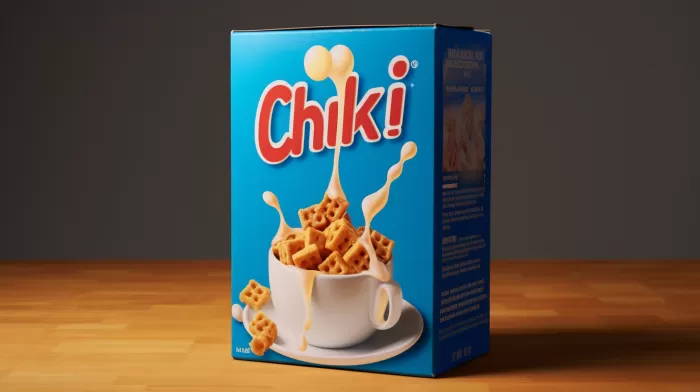High fructose corn syrup (HFCS) is notorious for sneaking into many of the foods we consume daily, with the ingredient causing various health issues, making it important to keep an eye on its presence in the products we buy. With increasing public awareness on the harms of HFCS, food manufacturers have started resorting to clever tactics to hide it right under our noses.
Big food scammers are being caught out by conscientious consumers who are beginning to consume less HFCS. As a result, food manufacturers have had to adapt their strategies. Some have halted its use in their products, proudly labeling the absence of HFCS on the packaging. Others, however, have sought to hide it in plain sight – the General Mills brand falls into this category. General Mills updated its popular Chex cereal, boasting a new vanilla flavoring and claims on the box of containing no HFCS. However, closer inspection of the ingredients list reveals the elusive “fructose” or “fructose syrup”, and more specifically, “isolated fructose”. This new name is actually replacing a product previously named HFCS-90, a super-sweet syrup composed of 90 percent pure fructose.
The Rise of High Fructose Corn Syrup
So, what exactly is HFCS, and why is it so prevalent in our food? Essentially, HFCS is a cheap, gooey syrup created from surplus corn, which, despite containing no nutritional substance, adds sweetness and caloric value to any processed food. From the time of its discovery in the 1950s until the 1970s, a method of mass production of the syrup was created, allowing its use in a variety of processed foods, including pizza, coleslaw, meat, bread, cakes, and soft drinks. As a result, the production of these foods was made considerably cheaper due to the inexpensive filler that could be incorporated into almost any product.
The use of HFCS causes several harmful effects to our health. Firstly, it obstructs the assimilation of calcium in the body. Widespread osteoporosis among Americans is no surprise, as many people chase down their calcium supplements with a drink containing HFCS. Secondly, HFCS causes cancer in test animals and predisposes humans to the disease. Additionally, HFCS, being a synthetic sugar, bypasses the pancreas, which can lead to the eventual shutdown of the pancreas and the onset of diabetes. This was predicted by Harvey Wiley, the first head of the Bureau of Chemistry (a precursor to the Food and Drug Administration), who also warned of the deceptive marketing of glucose and other adulterated corn products and their inclusion in food. Lastly, HFCS contributes to obesity and is considered highly addictive.
Despite the overwhelming evidence against HFCS, the FDA approves its use and claims to look out for public health. However, given that the FDA is seemingly controlled by lobbyists and profit-driven Big Food, it’s crucial for us to scrutinize the food we consume and ensure our health and well-being remain a top priority rather than corporate gain.
Anchor text: FDA
How to Avoid High Fructose Corn Syrup
To help you steer clear of HFCS, consider these tips when shopping and consuming food:
- Read labels: Make it a habit to go through the list of ingredients on the packages of the foods you buy, checking for any hidden fructose or fructose syrup.
- Opt for natural sweeteners: Choose natural sweeteners like honey, maple syrup, or stevia to satisfy your sweet tooth instead of products containing HFCS or artificial sweeteners.
- Choose fresh, whole foods: The most foolproof way to avoid HFCS is to consume fresh, whole foods such as fruits, vegetables, lean meats, dairy, and whole grains. These are unlikely to contain hidden sweeteners, and they pack a greater nutritional value.
- Buy organic: HFCS is less likely to be present in organic products, as they typically utilize natural sugars like honey or agave for sweetness.
- Bake from scratch: When it comes to sweet treats, bake them yourself, using natural sweeteners and whole grain ingredients, ensuring you control what goes into your food.
By being vigilant and making smart choices, you can take control of your own health and avoid the harmful effects of high fructose corn syrup.



